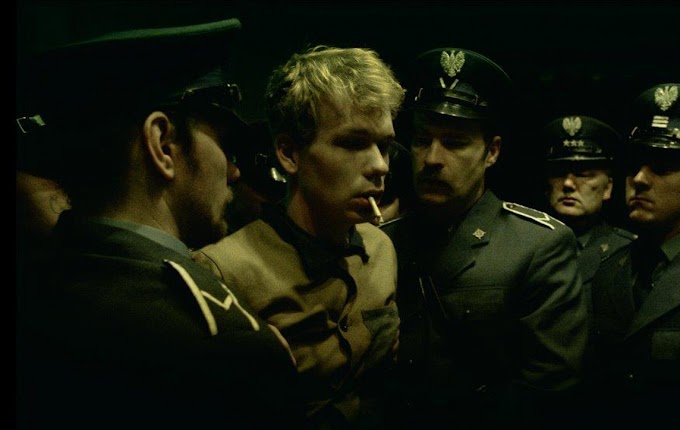The monumental work of Hayao Miyazaki, Japanese master of animation. «Spirited away» impressive by its formal and narrative profusion.
Spirited away is a prose poem, a rich
epic, a philosophical tale, a much more ambitious work than a simple learning
novel for youth, which confirms the unique talent of its author.
Chihiro is a 10-year-old girl, a
whimsical little city girl who travels by car with her parents on her way to
their new home. On the way, his father goes in the wrong direction. The family
crosses a huge tunnel and ends up in a disused amusement park. The disturbing
atmosphere turns into a nightmare when Chihiro’s parents, for feeding on food,
are turned into pigs. The little girl will discover a fantastic universe
populated by monsters, ghosts and ancient gods on vacation in a huge bathhouse
run by a witch. The rest is difficult to tell…
If the first part places the
spectator in a known ground, the second can confuse those who possess only a
superficial knowledge of Hayao Miyazaki’s work: The filmmaker takes us into a
proliferation of allegorical visions sometimes closer to Fellini than to
Kurosawa. Spirited away resembles a monumental version of My Neighbor Totoro (the
marvelous Sylvestre creatures and the filmmaker’s own vision of nature),
enriched with the spectacular dimension of Princess Mononoke.
Spirited away is a film that Miyazaki
primarily addressed to the audience of Japanese children. " At one time, I
had indeed the concern not to show only purely Japanese things in my films.
Right now, I want to show the Japanese, and possibly others, that Japan is as
rich in culture and history as other countries. Japanese people tend to forget
it. Japan is the country of tourists who travel to Paris to buy Vuitton bags.
It is time for them to rediscover their own roots. I am only wearing unmarked
clothes."
Miyazaki reread Lewis Carroll – Alice
too, as she entered the white rabbit hole, saw her mind go on a journey
(Spirited Away, according to the English title). But beyond the rereading,
spirited away is already imposing itself as a new classic: a contemporary
pedagogical narrative, allegory of the end of childhood and loss in the form of
a fable where all the degrees of reading, from the simplest to the most
symbolic, can cross paths without exclusion. For some time, undetermined as the
rules of the spirit world, Chihiro lived an inner journey that could be a
condensed, pictorial version of the life she intended to live beyond.
Through difficulties and sorrows
(loss of loved ones), hypocrisy and greed (frogs at the service of Yu-baba),
transformations and maturations (the Faceless): love, work and sense of
responsibility follow one another in the form of trials, to whom Chihiro is
subjected in order to acquire new wisdom.
Chihiro emerges stronger from his
enchanted journey and the lessons learned will serve him to face another, even
larger and uncertain one. In a world where evil spirits don’t wear masks to
indicate their true nature.
Unlike his previous films, which
tended towards a universal artistic form, spirited away marks a voluntary
anchoring in a purely Japanese imagination, a kind of return to the sources for
the artist, whose work also has a political dimension of resistance to the
Americanization of his country.
Miyazaki has often drawn the subjects
of his films from the world’s literary heritage. Spirited away is inspired by
traditional Japanese legends and refuses to make any cultural compromises. We
are far from a form of "world cinema" symbolized by Tiger and Dragon,
which takes advantage of the Western public’s enthusiasm for the exoticism of
Asian cinema.
Like his friend Akira Kurosawa,
Miyazaki is above the fray. An incorruptible artist, a master admired by his
peers, insensitive to fashions, this idealist harshly observes modern Japan.
" I always say that we should make films that meet our times, but not that
marry it. We are children of the time in which we live, but we must challenge
her, not blend into her. Artists who stick too much to their time will be
evacuated, as time passes. Their films will be abandoned on the side of the
road. If you marry your time, you stay with her, and you disappear with her."



.png)

1 Comments
Love it
ReplyDelete